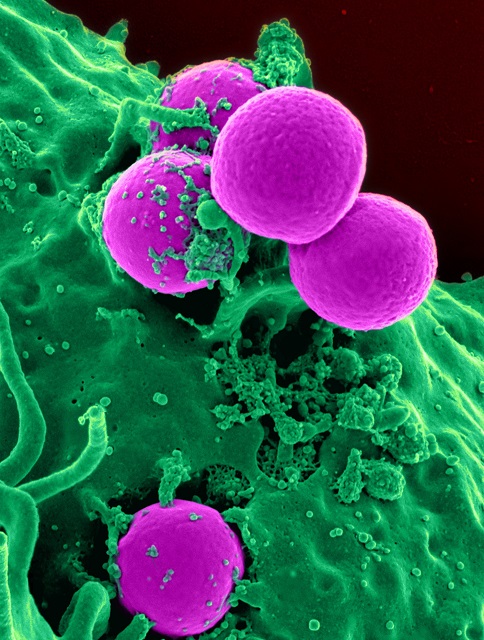Posted: Jul 15, 2020

In 1981, Adam Tolmach planted a five-acre vineyard on land he had inherited from his grandfather in the wine-growing region of Ventura County, California, a few miles east of Santa Barbara. As an undergraduate, Tolmach had studied grape growing and winemaking (areas of study known as viticulture and enology, respectively) and then worked for a couple of years at a winery not far from his grandfather’s land. In 1983, he started producing his own wines, which he sells under the Ojai Vineyard label.
Over the years, Tolmach’s grapevines began to suffer. The plants lost vigor and the leaves dried. It turned out the vineyard was affected by Pierce’s disease, a sickness that had long plagued southern California, but had become more severe in the 1990s after the invasion of the glassy-winged sharpshooter, a large leafhopper insect that feeds on plant fluids and can spread a bacterium known as Xylella fastidiosa, usually just called Xylella (pronounced zy-LEL’-uh). This bacterium has existed in the US since as far back as the 1880s, and over the years, it has destroyed at least 35,000 acres of the nation’s vineyards.
Tolmach witnessed the slow but certain death of his grapevines. By 1995, there were just too many missing plants, he says. So he decided to pull out the infected vineyard. To continue making wine, he bought grapes from other producers. Tolmach became a winemaker with no vineyard of his own.
Every year, American winemakers lose about $56 million worth of vines, while government agencies, nurseries, and the University of California system invest another $48 million in prevention efforts, according to research published in the journal California Agriculture. At least 340 plant species serve as hosts to Xylella, though the bacteria only harm some of them. Across the globe, Xylella has devastated orange trees in Brazil and olive fields in southern Italy, and recently a newly identified species, Xylella taiwanensis, has been infecting pear trees in Taiwan. As of now, there is no permanent solution. Each time a Xylella species has invaded a new region, it has proved impossible to eradicate.
Countries have long fretted about the potential for infected plant imports to spread the bacteria, and more recently, climate change has been identified as an additional threat, pushing the disease vectors’ habitat north, both in Europe and in the U.S. As winters become warmer, experts say, Xylella could enter new territories, upending their regional economies and landscapes.
By Agostino Petroni
Source: popsci.com
July 14, 2021
Go-Wine's mission is to organize food and beverage information and make it universally accessible and beneficial. These are the benefits of sharing your article in Go-Wine.com


The Wine Thief Bistro & Specialty Wines is a locally owned small business in downtown Frankfort, IL offering world class wines in a relaxed, casual gathering spot for friends and family. Offering world class virtual tastings and touchless carryout.
https://www.twtwineclub.com/aboutus
Go-Wine 25 Great Wineries in US selection prioritizes quality, value and availability.
www.go-wine.com/great-wineries-in-america
Tasting wine is a nice experience, but visiting the places in which wine is made is a magic moment. Available in New York City for touchless pickup.